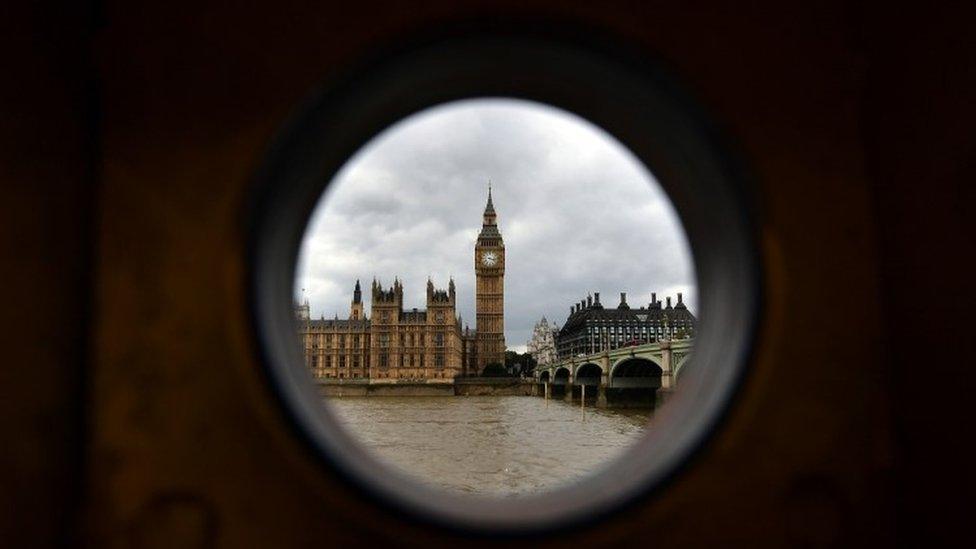What could boundary changes mean for Scottish MPs?
- Published
Andrew Kerr looks at the reasons for the changes - and what they could mean for Scottish MPs
The Boundary Commission for Scotland is to outline its plans to reduce the number of Scottish MPs from 59 to 53 on Thursday.
Here, BBC Scotland's Andrew Kerr looks at the reasons for the changes - and what they could mean for Scottish MPs.
This is a story as old as our parliaments, as old as representative democracy. Where do we get our officials from to represent us and how many should there be?
Remember from the days of school history - the stories of the "rotten" or "pocket" boroughs". Just a few voters so the landowner could send someone to parliament. Old Sarum, near Salisbury in Wiltshire, was perhaps the most notorious.
The practice was swept away in the 1832 Reform Act.
There are now new plans afoot for Scottish MPs - the 59 people who fly down to Westminster every week to represent our views.
It is possible that SNP MPs could have to fight each other to stand in the next general election and that pro-union MPs will face a struggle to get back into parliament.
The former prime minister, David Cameron, had pledged to reduce the number of MPs from 650 to 600 and to more evenly distribute the number of voters in each constituency. That's six fewer MPs for Scotland.
The technical name for this is actually the Sixth Periodic Review of Westminster Constituencies, deferred from 2013. Labour and the Liberal Democrats blocked it.
There are four separate boundary commissions for the UK. The Boundary Commission for Scotland will report on Thursday.
The others have already made their suggestions. You can check out the changes in the rest of the UK here.
The old PM decreed that each constituency in the UK should contain roughly the same number of eligible voters, the so-called "electoral quota" which is reached by dividing the total electorate of the UK by the number of required constituencies.
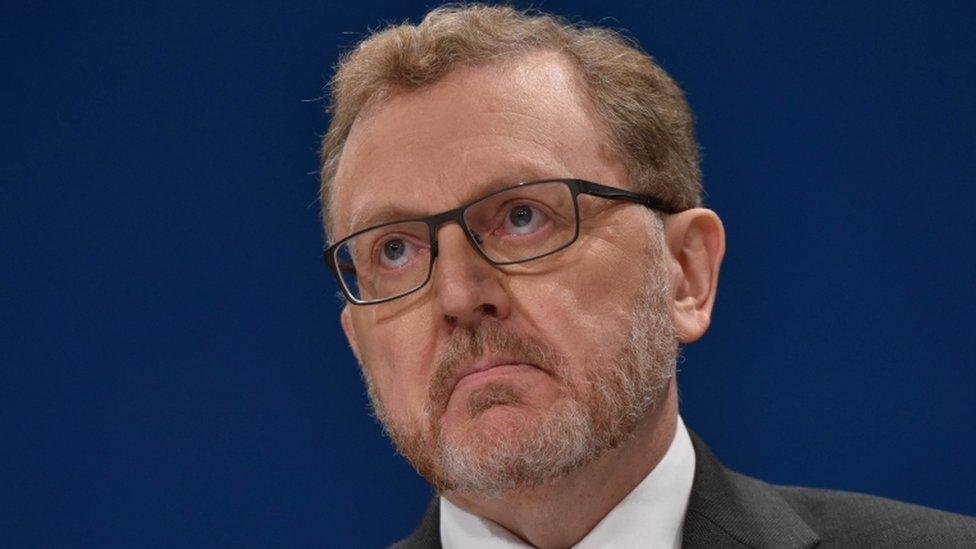
David Mundell's constituency could be one of those under threat
After excluding the Isle of Wight and two Scottish island constituencies, the quota currently stands at 74,769, based on the electoral register as it stood on 1 December 2015.
This cut-off date has caused some controversy because the switch to individual electoral registration meant that 770,000 names dropped off the list. More on that later.
The impact of the changes means some people are forecasting Jeremy Corbyn, the Labour leader, and George Osborne, the former Chancellor, could see their seats abolished.
But what could it mean in Scotland?
Prof John Curtice of Strathclyde University gave me his prediction: "We know that at the last general election, the SNP won 56 out of 59 seats so inevitably the lion's share of any losses is going be at the expense of the SNP. That said, the particular interest lies in the three MPs who didn't come from the SNP.
"Alistair Carmichael, the MP for Orkney and Shetland, is safe because that's carved out now as a special constituency and it's allowed to have its own seat.
"However, neither David Mundell in Dumfriesshire nor Ian Murray in Edinburgh South, our sole Conservative and Labour representatives respectively, can be sure of surviving this review.
"Certainly, if you look at what the Boundary Commission was proposing five years ago, before the last review was abandoned, then both David Mundell's seat and Ian Murray's seat could well end up being carved up quite heavily into constituencies which are no longer ones that we would necessarily assume that Mr Mundell would have won or Mr Murray would have won in 2015."
'Musical chairs'
Prof Curtice adds that they could well be faced with a tougher task on their hands to maintain their political careers as a result of the review.
For their political opponents, there's trouble ahead too with the professor saying there's going to be a "game of musical chairs within the SNP".
He points out the MPs with the most to worry about are those representing relatively small constituencies where the electorate is well below the Scottish average.
"It's very difficult to anticipate in advance who's going to end up fighting a battle with whom", he says.
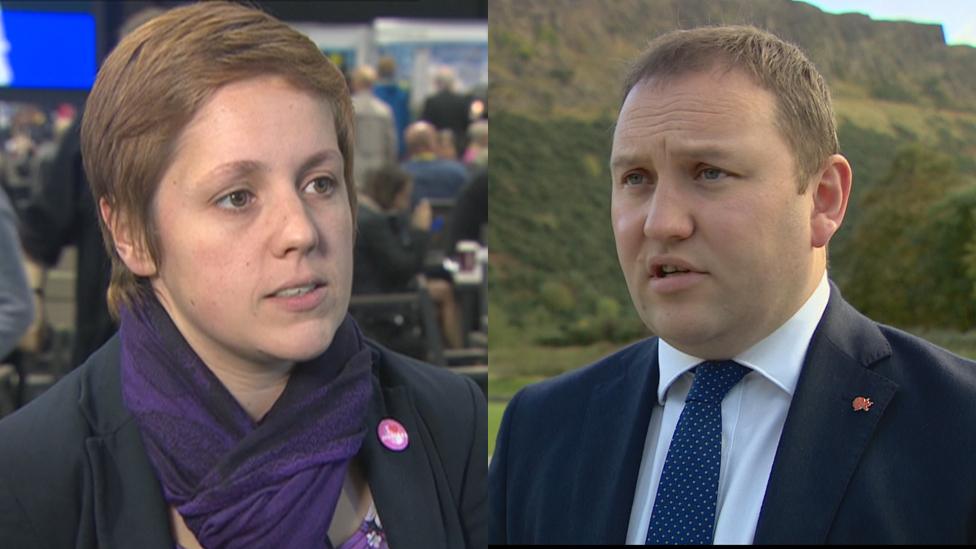
The MP for Aberdeen North, Kirsty Blackman, is the SNP's House of Lords spokesperson at Westminster. She queries the claims of cutting the cost of politics when she describes the Lords as "incredibly expensive".
But on the "musical chairs" point, she says: "I don't know what's going to happen. We don't know what the proposals are going to be. We haven't seen them yet. We haven't seen which constituencies are at risk and which ones aren't at risk.
"I think we're going to have issues with geography and I think that's going to be our key concern - to make sure that everybody is adequately represented."
Late breakfast
As some MPs prepare for this disruption, I popped down to Mr Mundell's constituency. We went to the southern end where the road bridge at Gretna Green crosses the border at the River Sark.
As people sat in the Old Toll Bar Cafe having a late breakfast, no-one was particularly perturbed at changes or plans to save money on politics.
Suitably fortified, we headed further up the road, but in Moffat Mr Mundell wasn't too keen to speak either.
It seems it's not really the done thing for MPs and secretaries of state to comment on their own constituencies in the review. It's a quasi-judicial process and they don't want to be seen to be interfering with the commissioners' work.
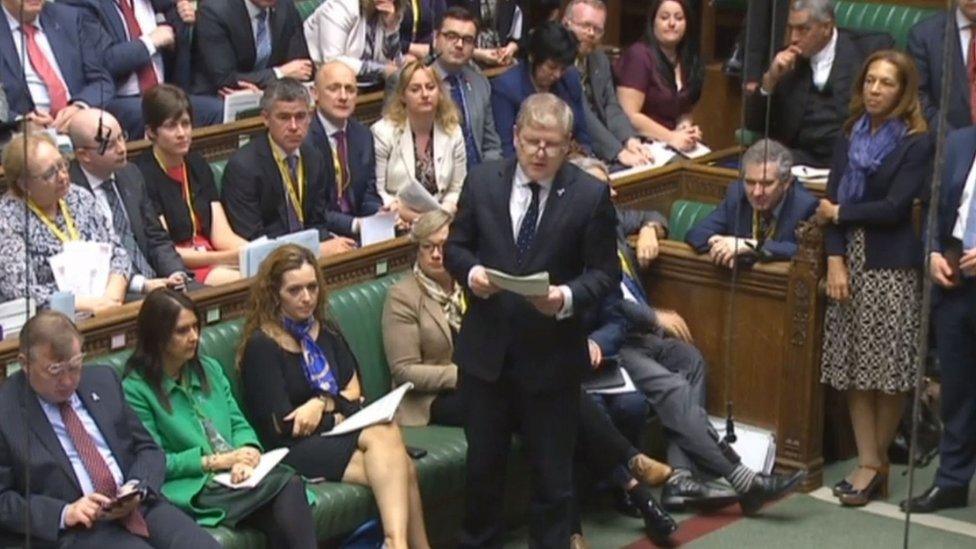
The boundary changes will see the loss of some seats that are currently held by the SNP
A UK government spokesman provided this statement instead: "Our parliamentary system needs to represent everyone equally.
"That is why the independent Boundary Commission for Scotland will shortly bring forward proposals to achieve equal-sized constituencies, ensuring an equal say for each voter.
"The case for these reforms was agreed by the last parliament - we are committed to ensuring fair and equal representation for the voting public, as well as cutting the cost of politics."
But Labour aren't happy with that.
'Cost of politics'
So to Edinburgh we go, and to Scotland's sole Labour MP, Ian Murray.
He's got the same issue - he doesn't want to comment on what might happen to his seat of Edinburgh South. But he did hit out at the process.
"I've no problem with there being equalisation of constituencies - which is what this is about - or indeed about reducing the cost of politics", he says.
"What I do regret is the fact the Conservatives are pushing this through on a register that's missing so many people. We wouldn't need to reduce the numbers if they used a register with the number of people that should be on it and also they're doing it under this veil of reducing the cost of politics while plugging all their cronies into the House of Lords."
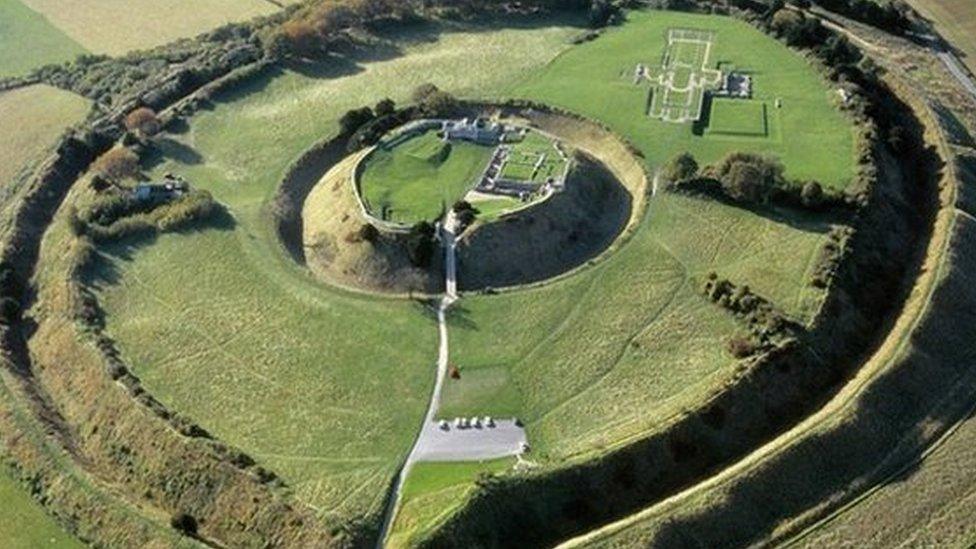
Old Sarum was a notorious Pocket Borough for the Pitt family - with William Pitt the Elder among those to have served as its MP
So despite the final result being an impartial decision, there is a distinctly political impetus behind this.
Prof Curtice steps in here again: "It's not wholly uncontroversial - not least because we are carving out these constituencies on the basis of electorates as of December last year and we know from the referendum on the European Union that a lot of people got themselves added to the electoral register since that date.
"So there have been arguments, particularly from the Labour Party, that this review is being conducted on the basis of an out-of-date electorate.
"However, certainly so far as Scotland, it's not going to make that much difference which set of electoral figures you use - so far as the partisan consequences are concerned.
"Actually it's not even clear across the UK as whole, even if we were using more up-to-date figures, if it would make that much of a difference to the kind of constituencies that are going to emerge when finally the commissioners report in October 2018."
The UK government says the proposals will be subject to public consultation and MPs in the House of Commons will have the final say.
Labour and the SNP aren't happy, so they won't want to vote it through. And that old political phrase of "turkeys voting for Christmas" might apply here because there could be a few Conservative members who would prefer not to see their constituencies disappear.
That might jeopardise the whole thing, and it might never happen.
So some thankful members might settle comfortably back into their constituencies with no change on the horizon - just like in those far away days of Old Sarum.
- Published17 October 2016
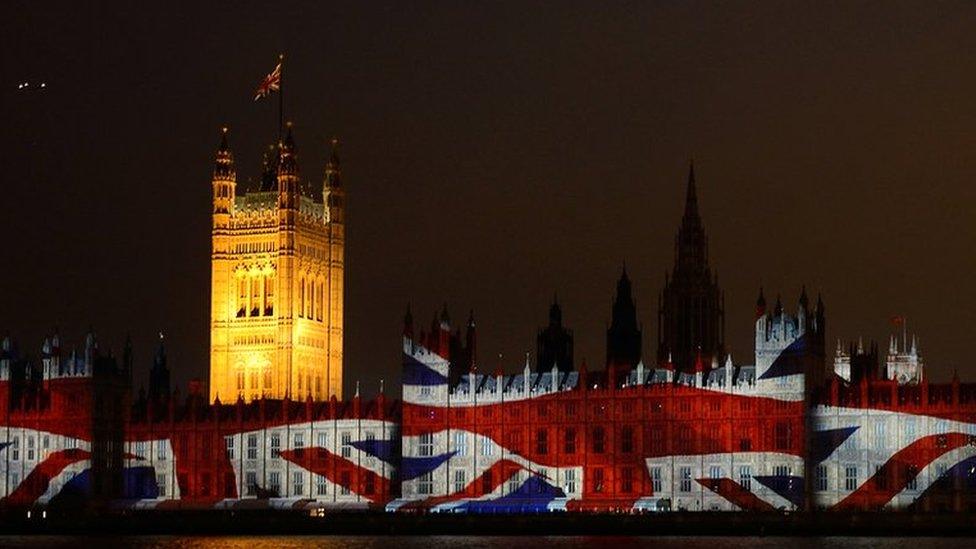
- Published13 September 2016
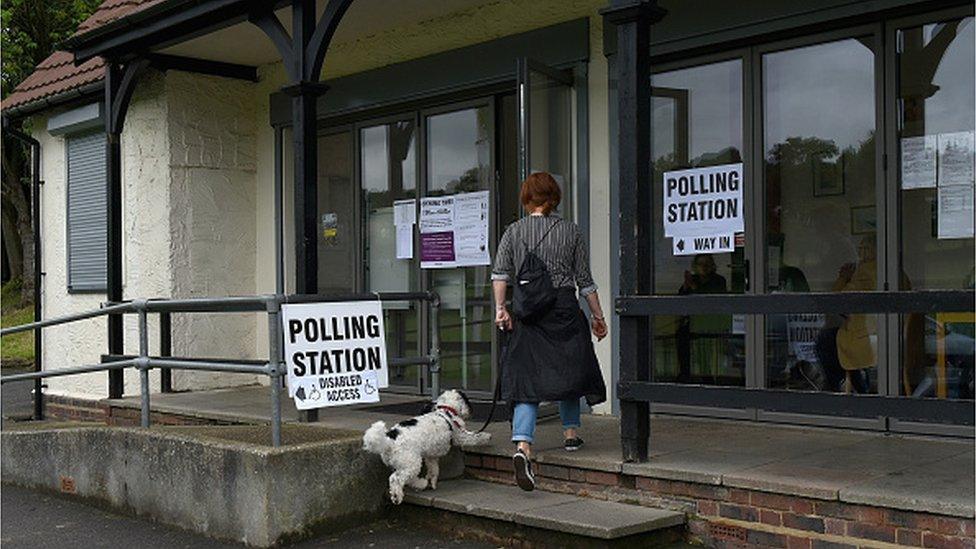
- Published13 September 2016
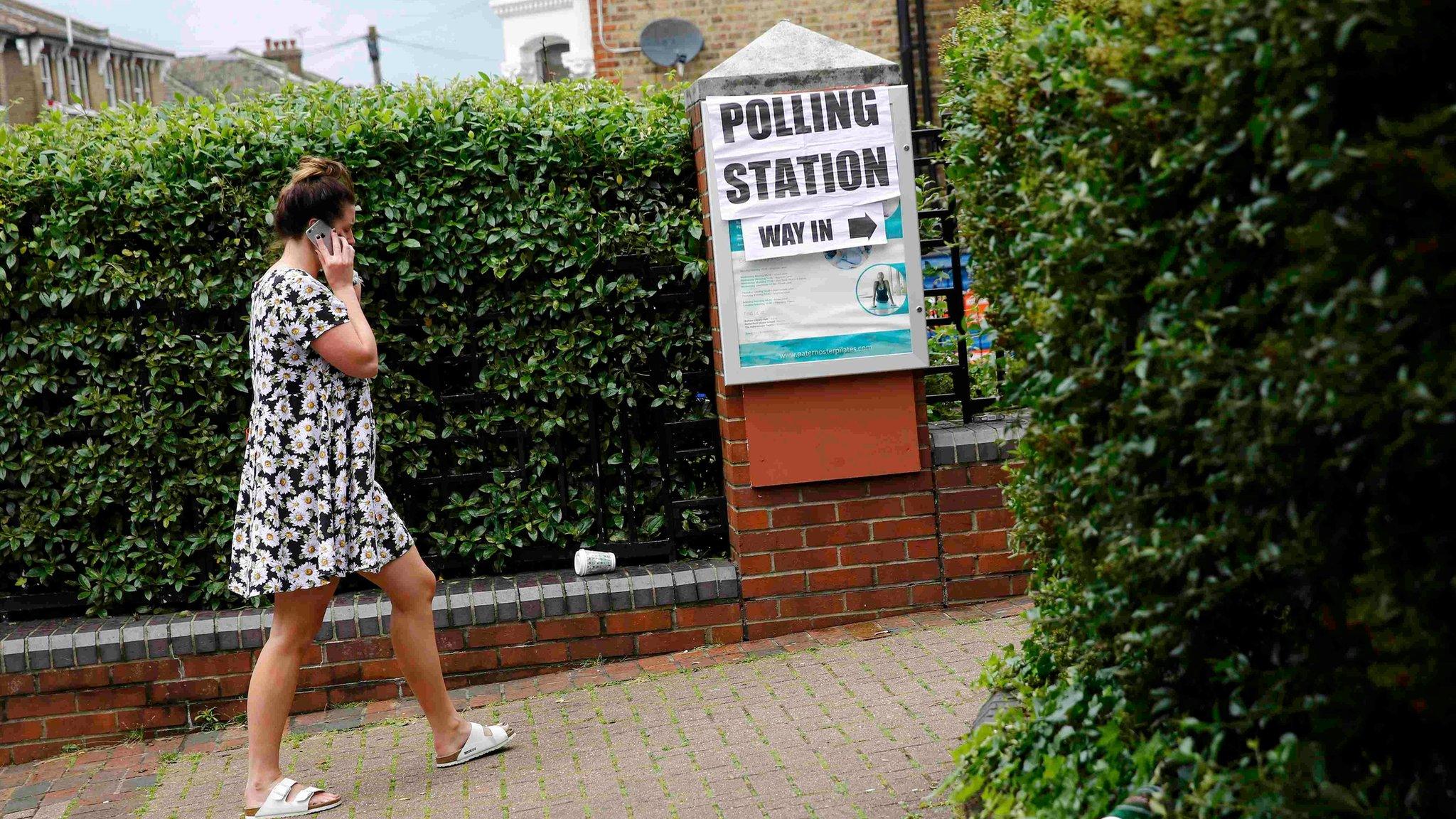
- Published13 September 2016
